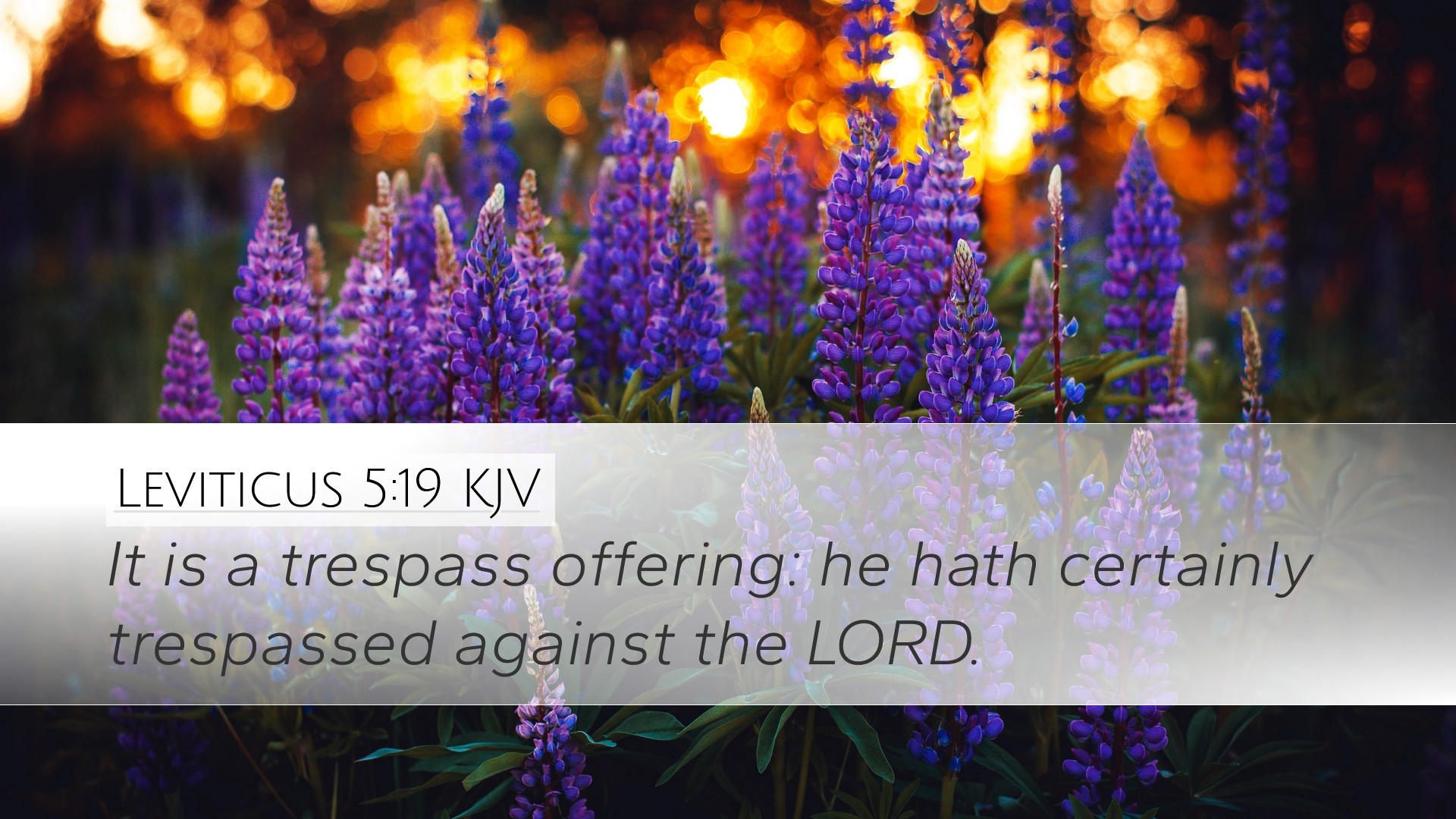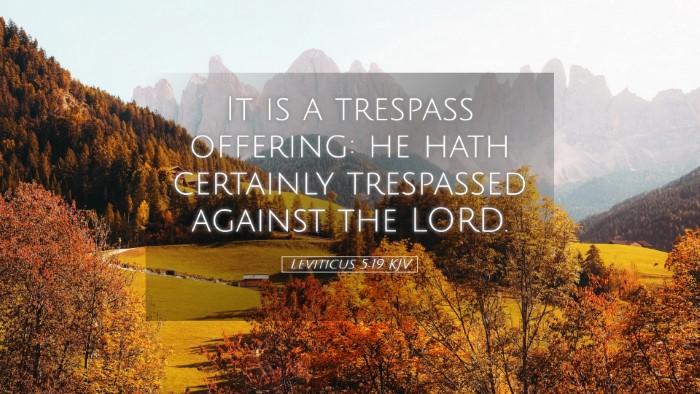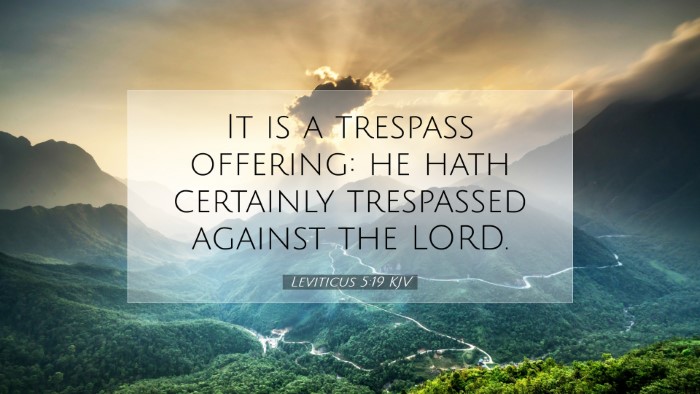Commentary on Leviticus 5:19
Verse Text: "It is a trespass offering; he hath certainly trespassed against the Lord."
Introduction
The verse Leviticus 5:19 addresses the matter of sin and its ramifications in Israelite society, particularly focusing on unintentional sins that still require atonement. The insights from public domain commentaries such as those by Matthew Henry, Albert Barnes, and Adam Clarke provide a comprehensive understanding of the theological, social, and spiritual implications of this verse.
The Nature of Trespass
This verse emphasizes the concept of "trespass" or "sin," indicating a violation against the divine law of God. The term used here signifies not merely a mistake but reflects a deeper ethical breach that carries significant weight in the context of covenantal relationship with God.
Matthew Henry's Insights
Matthew Henry elaborates that this verse showcases God's awareness of human fallibility. He observes that even unintentional sins carry the weight of guilt before God. Henry notes that the individual’s acknowledgment of sin is crucial, as the law demands recognition of imperfection to foster repentance and ultimately, restoration.
Albert Barnes' Comment
Albert Barnes emphasizes that the characterization of the offering as a "trespass offering" indicates a process of sacrificial atonement. Barnes states that an offering must be made to restore the relationship between the sinner and God. He insists that the emphasis on the necessity of sacrifice for sin highlights God's justice and the seriousness with which He regards all violations of His law.
Adam Clarke's Perspective
Adam Clarke adds that the Hebrew term used for trespass suggests a serious nature of the sin committed, further intensifying the requirement of a sin offering. He interprets the phrase "he hath certainly trespassed against the Lord" as an unequivocal acknowledgment of guilt that requires an active response—a sacrificial offering to make amends.
Theological Significance
In understanding the theological implications, one must consider that the sacrificial system outlined in Leviticus reflects the holiness of God. The requirement of a trespass offering signifies that even minor transgressions disrupt the communion between God and humanity. This bears a lesson for modern readers about the nature of sin and the sincerity required in seeking forgiveness from God.
Repentance and Restoration
The act of bringing a trespass offering is more than ritual; it embodies the ethos of repentance and restoration of one's relationship with God. The recognition of wrongdoing paired with action signifies a genuine desire for restoration and adherence to God's commands.
Social Context
Commentaries also draw attention to the social context in which these laws were given. Leviticus 5:19 not only interacts with the individual's relationship with God but also addresses communal harmony. Acknowledging sin and providing an offering reinforces the moral fabric of the community.
Impact on Community Life
This understanding prompts reflections on accountability and the maintenance of communal integrity. Each person's actions have consequences that extend beyond themselves into the broader community. The sacrificial system, therefore, promotes social responsibility and the necessity of living in accordance with God’s law.
Contemporary Application
For contemporary readers, Leviticus 5:19 serves as a reminder that all sins, regardless of their perceived significance, matter to God. It highlights the importance of self-examination and accountability in the community of faith.
Forgiveness Through Christ
In the light of the New Testament, Christians understand that the ultimate trespass offering has been fulfilled in Christ's atoning sacrifice. This realization frames the way believers approach the concept of sin and restitution today.
Conclusion
The exploration of Leviticus 5:19 through the lens of these commentators reinforces the seriousness with which God views sin and the faithfulness required from His people. The call to repentance and the assurance of atonement offer a path toward restoration both personally and communally. Engaging with this text invites pastors, students, theologians, and scholars to deeply understand the implications of sin and grace in both historical and modern contexts.


